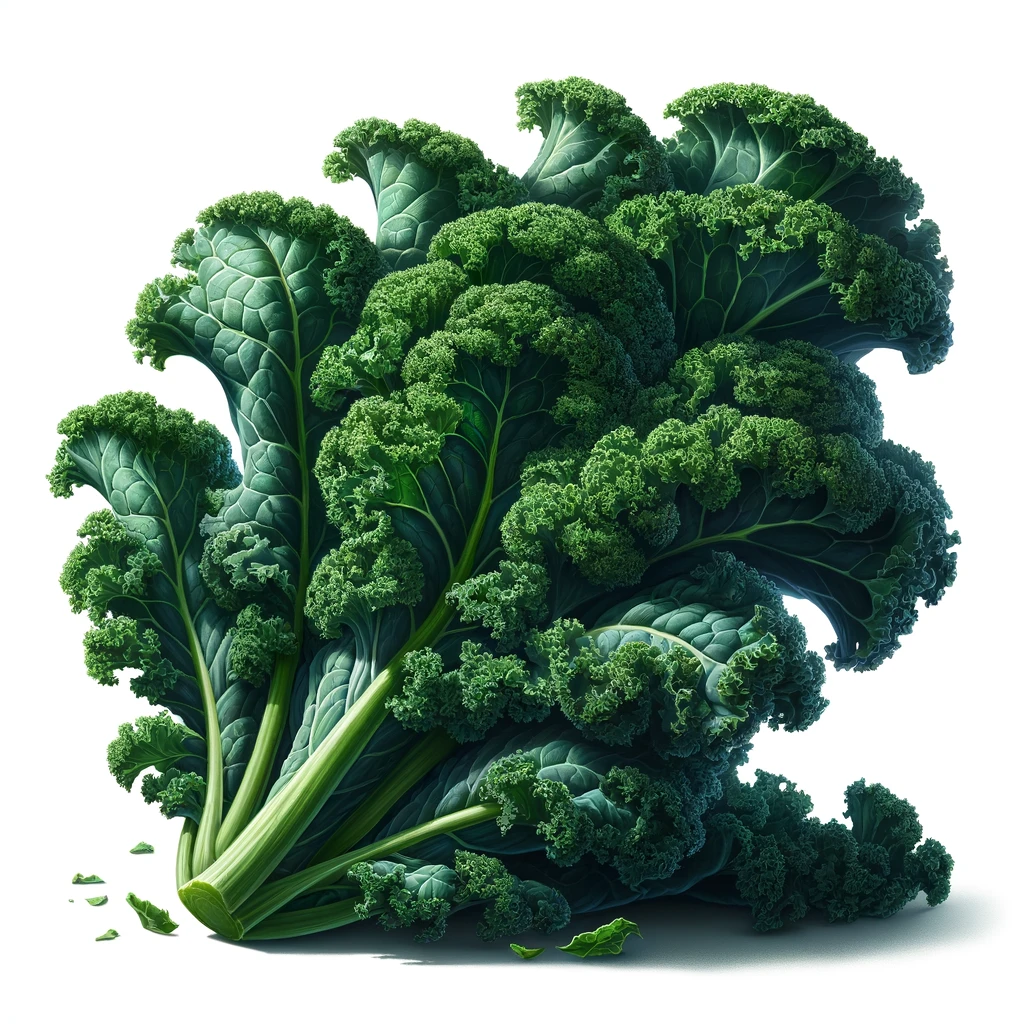Kale has earned its reputation as a superfood due to its impressive nutritional profile and numerous health benefits. This leafy green vegetable is a staple in health-conscious diets and for good reason. Packed with vitamins, minerals, and powerful phytonutrients, kale is a nutritional powerhouse that can contribute significantly to maintaining and conferring excellent health. In this blog post, we’ll explore the nutritional content of kale, its health benefits, and why incorporating it into your diet can help you achieve your best nutritional outcomes.
Nutritional Content
- Vitamins:
- Vitamin A: Crucial for vision, immune function, and skin health.
- Vitamin C: A potent antioxidant that supports the immune system and collagen production.
- Vitamin K: Essential for blood clotting and bone health.
- Vitamin B6: Important for brain health and the synthesis of neurotransmitters.
- Folate (Vitamin B9): Necessary for DNA synthesis and repair, particularly important during pregnancy.
- Minerals:
- Calcium: Vital for maintaining strong bones and teeth.
- Potassium: Helps regulate fluid balance, muscle contractions, and nerve signals.
- Magnesium: Involved in over 300 biochemical reactions in the body, including energy production and muscle function.
- Iron: Essential for the production of hemoglobin and oxygen transport in the blood.
- Manganese: Important for bone formation, blood clotting, and reducing inflammation.
- Phytonutrients:
- Flavonoids: Such as quercetin and kaempferol, which have antioxidant and anti-inflammatory effects.
- Glucosinolates: Sulfur-containing compounds that may have anti-cancer properties.
- Lutein and Zeaxanthin: Carotenoids that support eye health and protect against macular degeneration.
- Macronutrients:
- Calories: 35
- Carbohydrates: 4.4 grams
- Protein: 2.9 grams
- Fat: 1.5 grams
- Fiber: 4.1 grams
Health Benefits
- Supports Cardiovascular Health: Kale is rich in antioxidants, including vitamin C and beta-carotene, which help reduce oxidative stress and inflammation in the cardiovascular system. The high fiber content also aids in lowering cholesterol levels and improving heart health.
- Boosts Immune Function: The high levels of vitamins A and C in kale strengthen the immune system by enhancing the function of white blood cells and protecting against infections.
- Promotes Healthy Digestion: Kale’s high fiber content supports digestive health by promoting regular bowel movements and preventing constipation. Fiber also feeds beneficial gut bacteria, which are crucial for a healthy gut microbiome.
- Supports Bone Health: Kale is a great source of calcium, vitamin K, and magnesium, all of which are essential for maintaining strong bones and preventing osteoporosis. Vitamin K plays a critical role in bone mineralization and helps prevent bone fractures.
- Aids in Detoxification: The glucosinolates in kale support the body’s natural detoxification processes by activating liver enzymes that help neutralize and eliminate toxins.
- Improves Eye Health: Kale contains high levels of lutein and zeaxanthin, carotenoids that are essential for eye health. These compounds help protect against age-related macular degeneration and cataracts.
- Potential Cancer Prevention: The glucosinolates and flavonoids in kale have been shown to have anti-cancer properties. These compounds help neutralize carcinogens and inhibit the growth of cancer cells.
- Anti-inflammatory Properties: The omega-3 fatty acids and various antioxidants in kale help reduce inflammation, which is linked to numerous chronic diseases such as arthritis, heart disease, and diabetes.
Culinary Tips and Considerations
- Smoothies: Add a handful of kale to your morning smoothie for a nutrient boost without significantly altering the taste.
- Salads: Use raw kale as a base for salads. Massage the leaves with a little olive oil and lemon juice to soften them and reduce bitterness.
- Stir-fries: Include kale in stir-fries with other vegetables and lean proteins for a nutritious and flavorful meal.
- Soups and Stews: Add chopped kale to soups and stews during the last few minutes of cooking for added nutrition and texture.
- Chips: Make kale chips by tossing the leaves with a little olive oil and seasoning, then baking until crispy.
Conclusion
Kale is a nutritional powerhouse that offers a wide array of health benefits. From supporting cardiovascular and bone health to boosting the immune system and promoting healthy digestion, the benefits of kale are well-supported by scientific evidence. Incorporating kale into your diet is a simple and delicious way to enhance your nutritional intake and support your long-term health.





